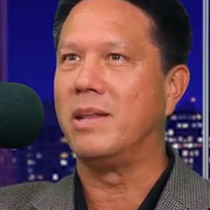Will New Corporate Tax Plans Hurt the U.S. in the End?

The winds of change are blowing when it comes to taxes and corporate taxes are no exception. President Trump and the House are both ready to lower the corporate tax rate in an effort to create a more business friendly environment for U.S. companies here in the states. Currently, the corporate tax system is a mess, which is why so many large companies keep so much of their earnings overseas, and that costs the U.S. billions in tax revenue.
The basic premise behind the current administration’s plan is to change the current model of tax on the return to capital into a model that taxes only extraordinary profits. The plan would do this by taxing corporate cash flows. The plan would make three major changes to accomplish this.
Number one, any investment outlays would not have to be depreciated over time, but instead they could be written off during the same year they were undertaken. The next major change would make interest payments to creditors non-tax-deductible. Lastly, in order to continue to promote our county’s competitiveness with the rest of the world, corporations would not have to include export receipts when they calculate their taxable income. On the other hand, they would not be allowed to deduct from their income payments to foreign affiliates and suppliers.
However, there are some who feel this plan could be very detrimental to our nation’s economy in the long run. The first problem is that the change could increase income inequality even more between the wealthy the rest of the country. The tax change could also increase uncertainty, put additional burdens on certain sectors and cause a volatile redistribution of income. The tax change could also hurt the global economy, according to some circles and the long-term of cost of making this tax change could end up causing large tax increases or spending reductions.
Of course, there are two sides to every story, so it remains to be seen what changes are made and how they will affect corporations and our nation’s financial well-being.
https://www.nytimes.com/2017/01/07/upshot/the-major-potential-impact-of-a-corporate-tax-overhaul.html?_r=0
https://www.washingtonpost.com/opinions/trump-and-ryan-are-right-to-tackle-corporate-taxes-but-their-approach-would-do-harm/2017/01/08/e7abd204-d429-11e6-9cb0-54ab630851e8_story.html?utm_term=.fd3e2b28a833
Power of Innovation | Dean Sivara
Power of Innovation About Dean Sivara Dean is the Vice President of Innovation & New Businesses, in the Products & Innovation Group. The Innovation and New Businesses practice is one of SAP’s global incubation and commercialization engines, looking to capitalize on industry disruptions and building new businesses in adjacent markets. The Innovation group evaluates new…
Real Estate 101 | Sherri Stoneberger
About Sherri Stoneberger Stonberger received her foundation of work ethics. growing up on a family farm in Oklahoma. She attended college at the University of Central Oklahoma, earning a degree in human development, with a physical education minor. After graduation she became a military wife and eventually settled in the Mission, Fremont area where…
Optimizing Your App | Trevor Cornwell
About Trevor Cornwell Trevor Cornwell, Founder and CEO, appbackr inc., a Palo Alto-based Market Exchange for Apps. Appbackr helps publishers and platforms identify the rights apps to optimize revenue. Appbackr is a winner of the PayPal X Developer Challenge, an OnMobile 100 Company and an AlwaysOn 250 Company. Cornwell’s career has been spent developing and…
Intel Chief Economist | Paul Thomas
About Paul Thomas Paul Thomas is chief economist and manager of market sizing and forecasting at Intel Corporation in Santa Clara, Calif. He joined Intel in December, 2004, after working at Continental Airlines in Houston, Texas, from 1997 to 2004 and as chief economist from 2001 to 2004. Paul was senior economist at Douglas Aircraft…




